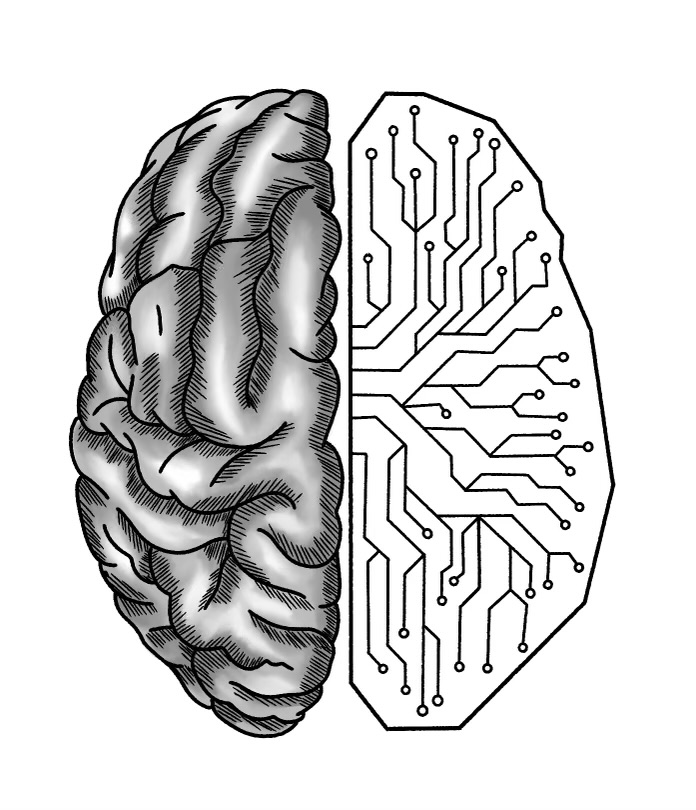As high school students, we are taught to value hard work and measure our self-worth on our list of accomplishments each day. For instance, we constantly compare our grades and class difficulty. Society has created a stigma on rest, labeling rest as lazy and unproductive. People should learn to embrace rest as a productive tool rather than sulking in the guilt of taking a break.
Similar to the muscles in our body, our mind can become fatigued after long-term effort. I’ve noticed that my mind will wander after I have strained my eyes in computer light and buried myself in assignments for hours on end. The Life Adjustment Team of psychiatric rehabilitation specialists explains that work-life balance is crucial for brain function. To perform our best mentally, one must be well physically and emotionally, and without proper rest that is not achievable.
It becomes clear that taking a break from your work is crucial to stop the chain of ongoing chronic stress and anxiety. When students are inundated with stressful assignments, it can be hard to recognize when a break is needed. Our school work demands a concentrated mind to p roblem-solve, using complex skills to complete tasks. So if we don’t allow ourselves a break, how can we expect our minds to function effectively when we are not in the right headspace?
roblem-solve, using complex skills to complete tasks. So if we don’t allow ourselves a break, how can we expect our minds to function effectively when we are not in the right headspace?
Dr. Christine M. Crawford of the National Alliance on Mental Illness (NAMI) explained how mental health could affect students’ ability to perform in school.
“When it comes to mental health conditions, such as depression and anxiety, those are also medical conditions that can interfere with anyone’s ability to function at work and at school,” Crawford said.
When one doesn’t take time out of their day to rest, it becomes difficult to use our brain mentality to focus. According to a 2023 Bark survey, about 3 out of 10 Redwood students are diagnosed with a mental health disorder. Mental health can easily be affected by stress related to school. Even if you are not diagnosed with a mental disorder, it is no secret that anyone can easily get overworked and burned out while wrapped up in a plethora of tasks.
Research conducted by the National Library of Medicine in Maryland shows that taking breaks from work can improve performance and efficiency, especially on prolonged attention tasks. Rest has a multitude of benefits, including reduced stress and anxiety, improved mood and improved immune health. Many people incorporate rest in the form of sleep. However, there are many other ways to incorporate rest throughout one’s daily routine. Resting comes in all variations. One of the primary forms of rest is a mental health day. Validating mental health days can result in ending the chain of stigma around taking a break.
Many students may not seem keen on taking a mental health day, as it would leave them to return to their classes swamped with even more tasks. However, if teachers learn to accommodate their students’ work styles and allow for small breaks between extensive lectures, it might help relieve some of the pressure of taking breaks. Teachers should encourage mental health days. Many might not realize that California is among 12 states that recognize mental health days as excused absences for students. It is important to recognize that sometimes a mental break is needed. We should not be guilted into believing that taking time for ourselves will only result in more tasks when we return to work, resulting in no benefit to our mental health.
It may seem counterintuitive to think of rest as a productive activity due to the fact that assignments do not get completed when one takes time to rest. It could seem as though avoiding getting tasks done is the focus when rather it is just giving our mind and body time to recenter. Society is twisted into a mindset that success is not attainable until we tire ourselves under loads of pressure built up from our tasks.
Alex Soojung-Kim Pang, a Silicon Valley consultant and author, explained how rest can be beneficial.
“[Rest is] not this leftover activity. Work and rest are actually partners. They are like different parts of a wave. You can’t have the high without the low. The better you are at rest, the better you will be at work,” Pang said.
Energy, as well as effort, is required to achieve work-related tasks. One shouldn’t feel guilty for taking care of themselves. The pressure that builds up with each assignment chips away at a solidified student’s mental well-being. When we finally find a balance between work and well-being and learn to embrace rest as a productive tool rather than an obstacle, looking out for our mental health will no longer be followed by guilt but rather by an open mind.







